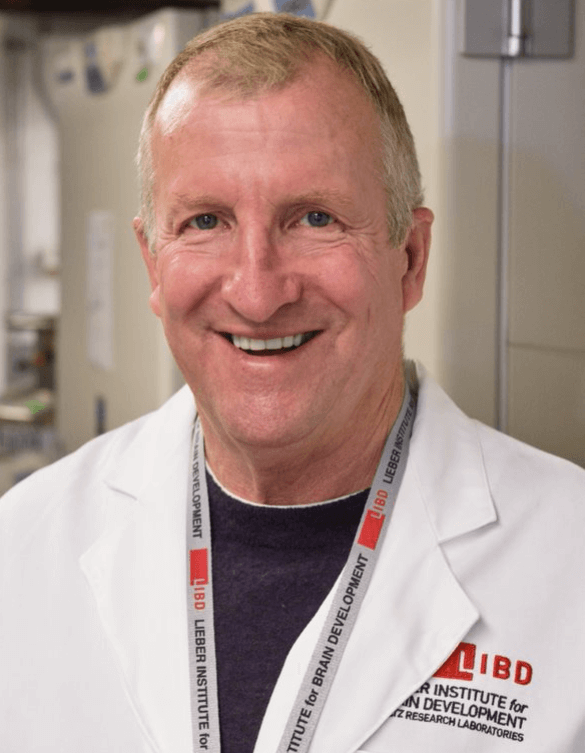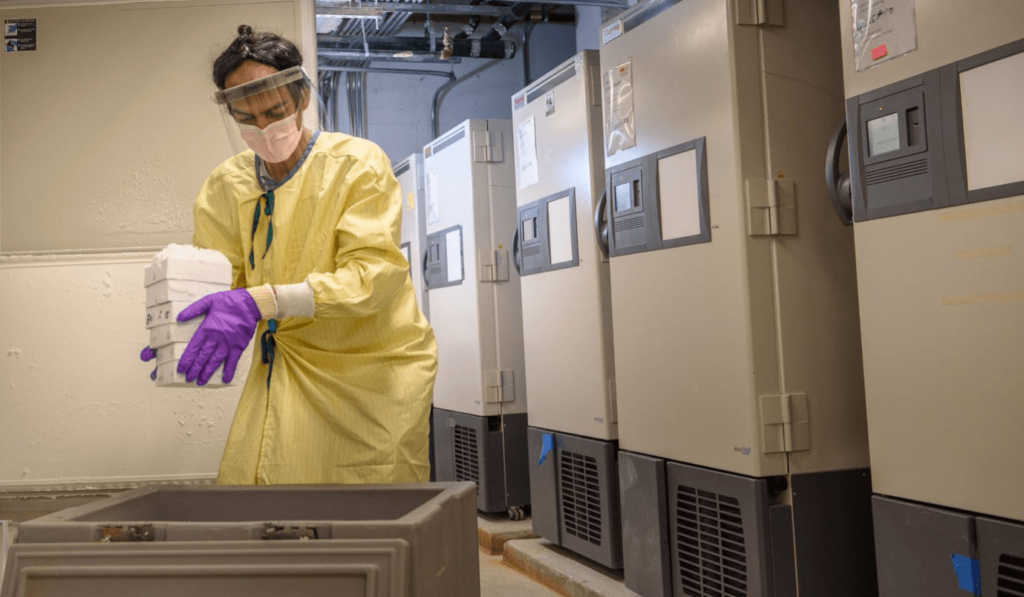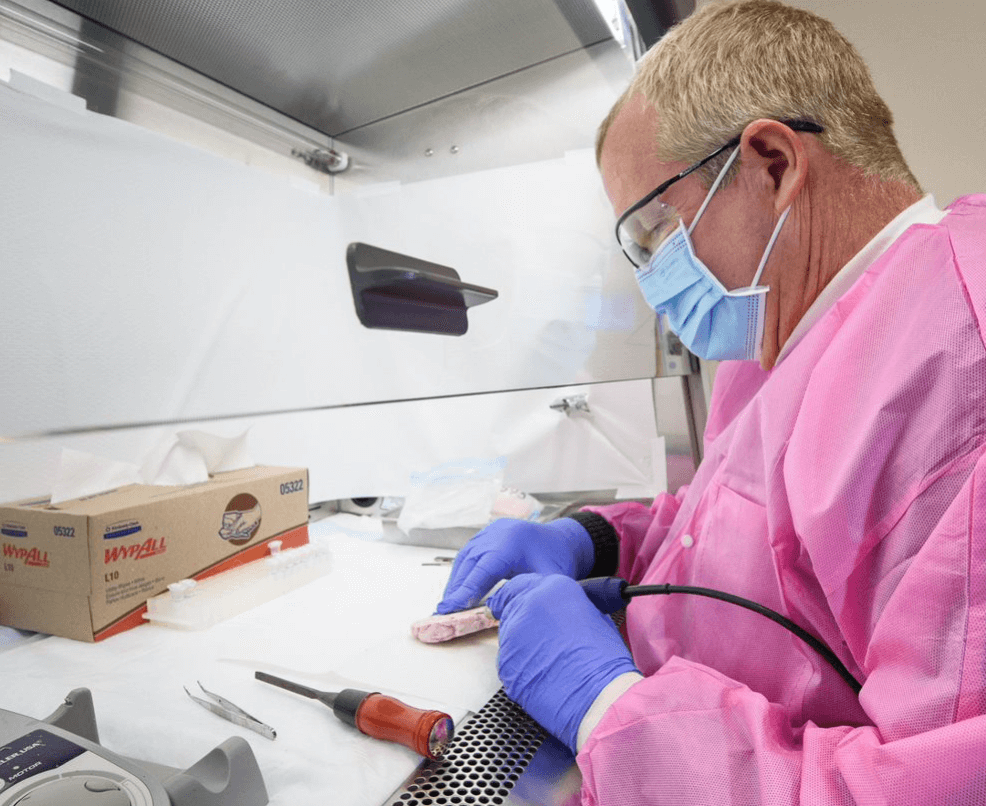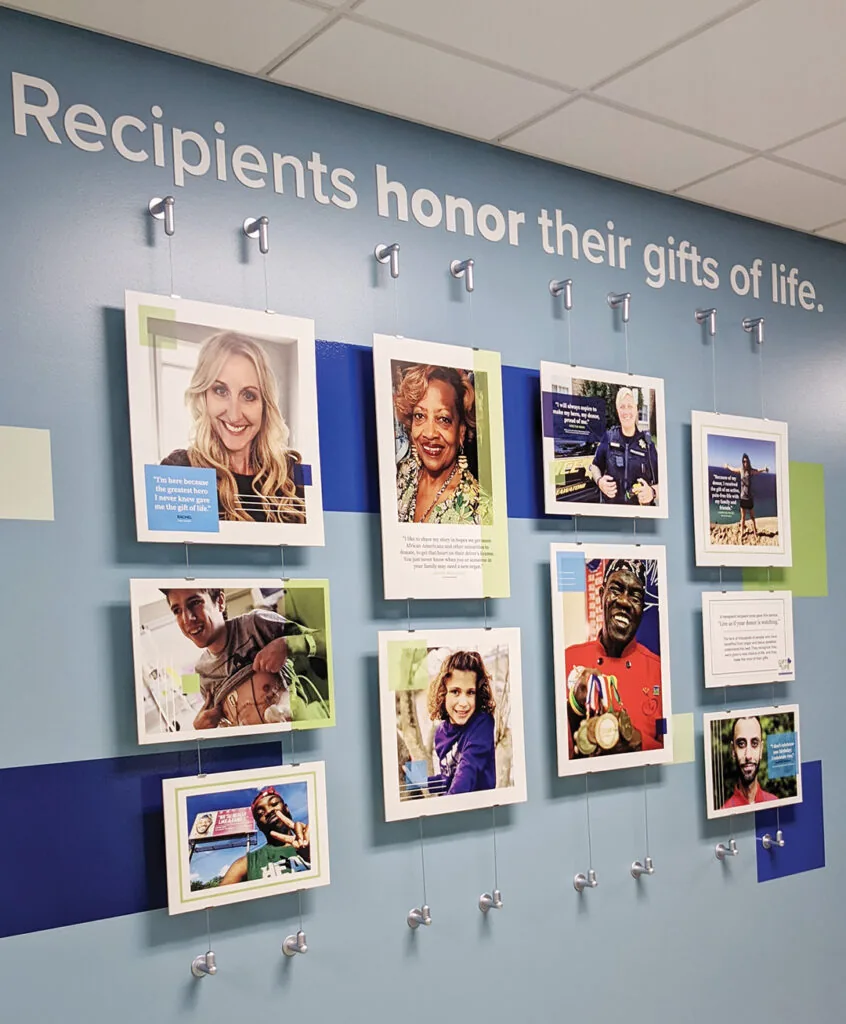Unique partnership has the potential to improve millions of lives
The families of donors in Michigan are saying yes to research that could lead to breakthroughs in crippling diseases of the brain.
In fact, 170 families gave explicit permission in 2022 to donate the brains of their loved ones to the Lieber Institute for Brain Development in Baltimore.

It’s the largest repository of post-mortem brains dedicated to neuropsychiatric disorders in the world. Important work there is centered around finding treatments and cures for everything from Alzheimer’s and Parkinson’s disease to schizophrenia, suicide, PTSD and autism spectrum disorder.
“Families across Michigan have very generously donated their loved ones’ brains and they are a major source for some of the most advanced research in the world,” said Lieber Institute’s Chief Medical Officer Dr. Thomas Hyde. “Gift of Life is an invaluable partner.”
Michigan donors like Lloyd Griffin of Detroit are providing typical specimens to compare with the brains of other donors who were affected by neurological disorders.
Lloyd was 72 when he passed away in May. His brother, Thaddeus Shakoor, knew Lloyd would want to help others. Lloyd donated bone and skin to help patients heal — and his brain for research.
“When I got the call and they explained what it was all about, I felt there was some kind of way Lloyd’s passing could mean something for someone else,” Thaddeus said. “I talked with my wife about it. We thought he would want to help others.”

In addition to having the world’s largest repository of PTSD brains (150) from military veterans, the institute works to serve all communities regardless of ethnicity, ancestry or social status.
Researchers have published more than 22 scientific articles made possible by Michigan tissue donors like Lloyd, Dr. Hyde said.
Bruce Nicely, Gift of Life’s vice president of clinical operations, said Medical Examiner Dr. Joyce deJong at Western Michigan University Homer Stryker M.D. School of Medicine in Kalamazoo connected Gift of Life with the institute. Bruce said he’s grateful because the research is in lockstep with the organization’s core purpose: To honor life through donation.
“Life is precious, so with everything we do, we seek to honor it and make it better,” he said. “Brain research is a shining example of what is and what might be someday for people all over the world.”
Families must give special permission, so Lieber teams talk with them about screening criteria, help them understand how the brain is removed at Gift of Life’s Donor Care Center in Ann Arbor, and let them know they can still plan an open casket viewing. Lieber Institute covers all costs and is happy to share autopsy results.
“It’s hard to find words to describe how special these families are,” Bruce said. “Their grief is profound, yet they look beyond and say, ‘This is who our loved one was and what they would want.’”
Breakthroughs are coming in treatment for cognitive impairment in Parkinson’s disease, schizophrenia and traumatic brain injuries.
“This partnership has the potential to affect millions of lives.”
© Photos by the Lieber Institute for Brain Development









